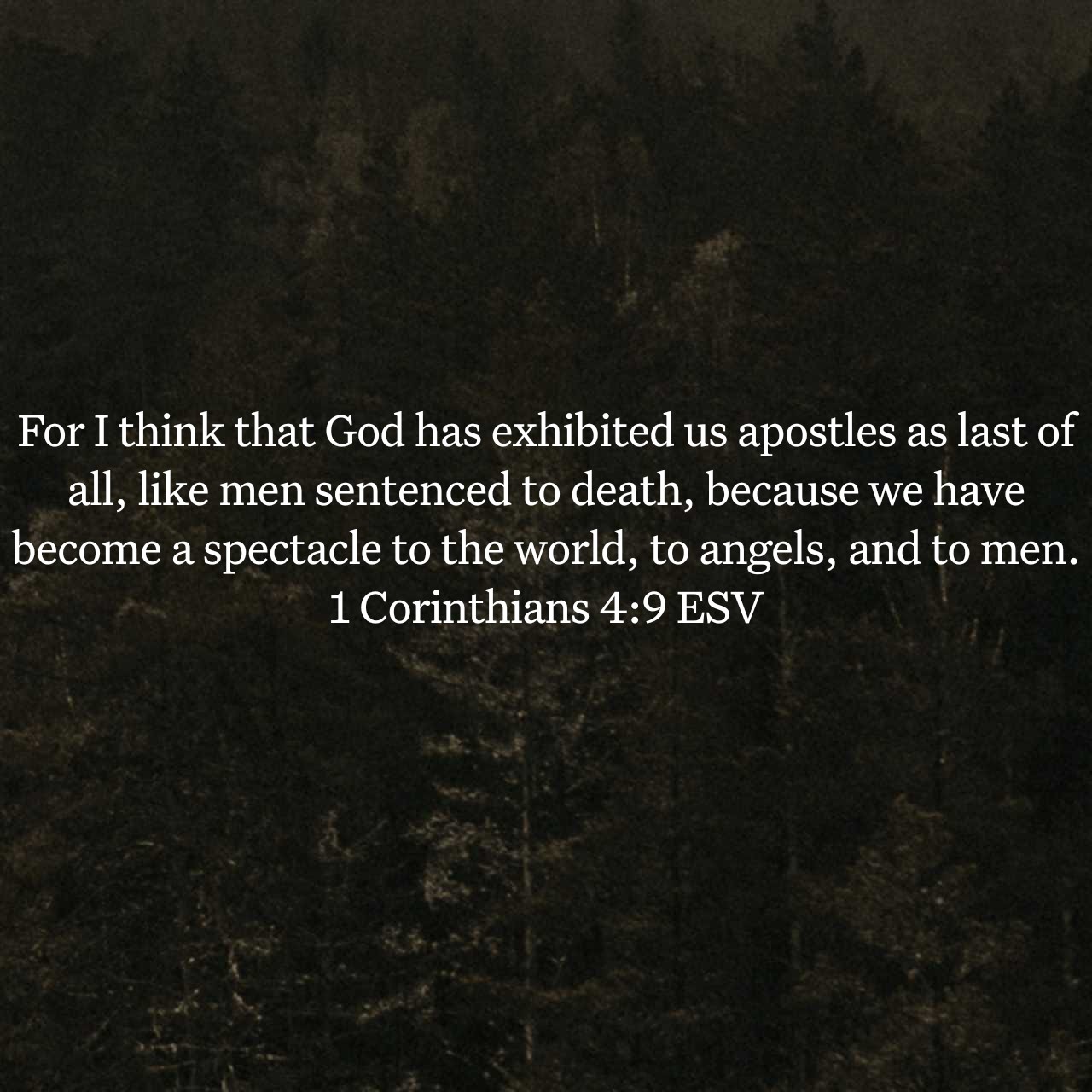Devotional 3 November 2025

Paul writes with deep irony and fatherly affection. The Corinthians, proud of their spiritual gifts and social standing, saw their success as proof of maturity. Paul dismantles that illusion by comparing their boasting to his suffering. If being in Christ means honor, wealth, and comfort, then Paul, who endures hunger, persecution, and shame, must be the least of all believers. Yet, it is precisely his hardship that reveals true discipleship. The apostles are “a spectacle to the world,” despised and mocked, but their endurance reflects the pattern of Christ Himself, who “emptied Himself, taking the form of a servant” (Philippians 2:5–8).
The wisdom of God is revealed through what the world calls foolishness (1 Corinthians 1:27). Paul blesses when cursed (Romans 12:14), endures when struck down (2 Corinthians 4:8–10), and rejoices to share in the sufferings of Christ (Philippians 3:10). This is the Wisdom of God that confounds worldly wisdom. Faithfulness does not exalt self but magnifies Christ, who “though He was rich, yet for your sake became poor” (2 Corinthians 8:9).
Paul’s concern is not merely that the Corinthians think too highly of themselves, but that they are being shaped by teachers who glorify worldly success. False teachers often disguise pride as spirituality, boasting in what they have accomplished rather than in what Christ has done. Paul urges believers to imitate not the strong, but the crucified: to measure faith not by applause but by endurance in love.
The call remains: live in the Wisdom of God, not in the wisdom of the world. To follow Christ is to walk the narrow road of humility, endurance, and love until glory is revealed.